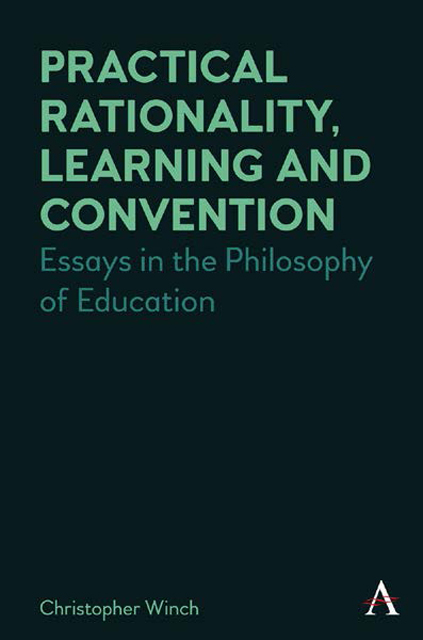Chapter Fifteen - Rousseau on Learning: A Re-Evaluation
Published online by Cambridge University Press: 09 December 2022
Summary
Introduction
This article examines Jean- Jacques Rousseau's theory of learning and assesses its strengths and weaknesses. The theory is an integral part of the account of education developed in Emile. Not only is Emile a work of sustained literary brilliance but it is rigorously worked out from its own premises. It also prefigures some of the insights in epistemology and the philosophy of mind that are attributed to Ludwig Wittgenstein. Any attempt to deal with the theory of learning that it sets out needs to engage closely with the fundamental ideas of the book and how they hang together, before criticism can be effective.
Rousseau's positive contribution to philosophical and psychological thinking about learning can be described as follows. Human beings are not disembodied intelligences but embodied creatures who are part of the natural world. The thrust of Rousseau's educational program and, by implication, of his epistemology, is to take individuals as whole, organic beings, part of the natural order of things and to develop them in more than narrowly intellectual ways. This remains the case despite the empiricist character of his description of the genesis of ideas and of their use (Emile, 32, 340).
Rousseau does not take the view that human beings are best seen as essentially solitary individuals, but the idea of human society that he develops as the proper medium for mutual association and self-expression, does not allow him to give either a satisfactory account of human learning or of the nature of social relations. His unwillingness to see that a normative order is constitutive of all social relations of the human type runs through his writing and keeps him from appreciating the importance and indeed, the necessity of normative intervention in upbringing from the earliest stages of life.
Finally, there is the developmentalist heritage of Rousseau. This arises from his view of the human condition as one of growth, maturity, and decay. Although this is a valuable insight, it also contains dangers. These arise from two sources, both of which can be found within Rousseau's thinking. The first is the contention that the sole, or at least the main source of motivation and hence of motivation to learn, is to be found primarily within individual human beings, rather than within human beings in the context of their social surroundings.
- Type
- Chapter
- Information
- Practical Rationality, Learning and ConventionEssays in the Philosophy of Education, pp. 213 - 226Publisher: Anthem PressPrint publication year: 2022

